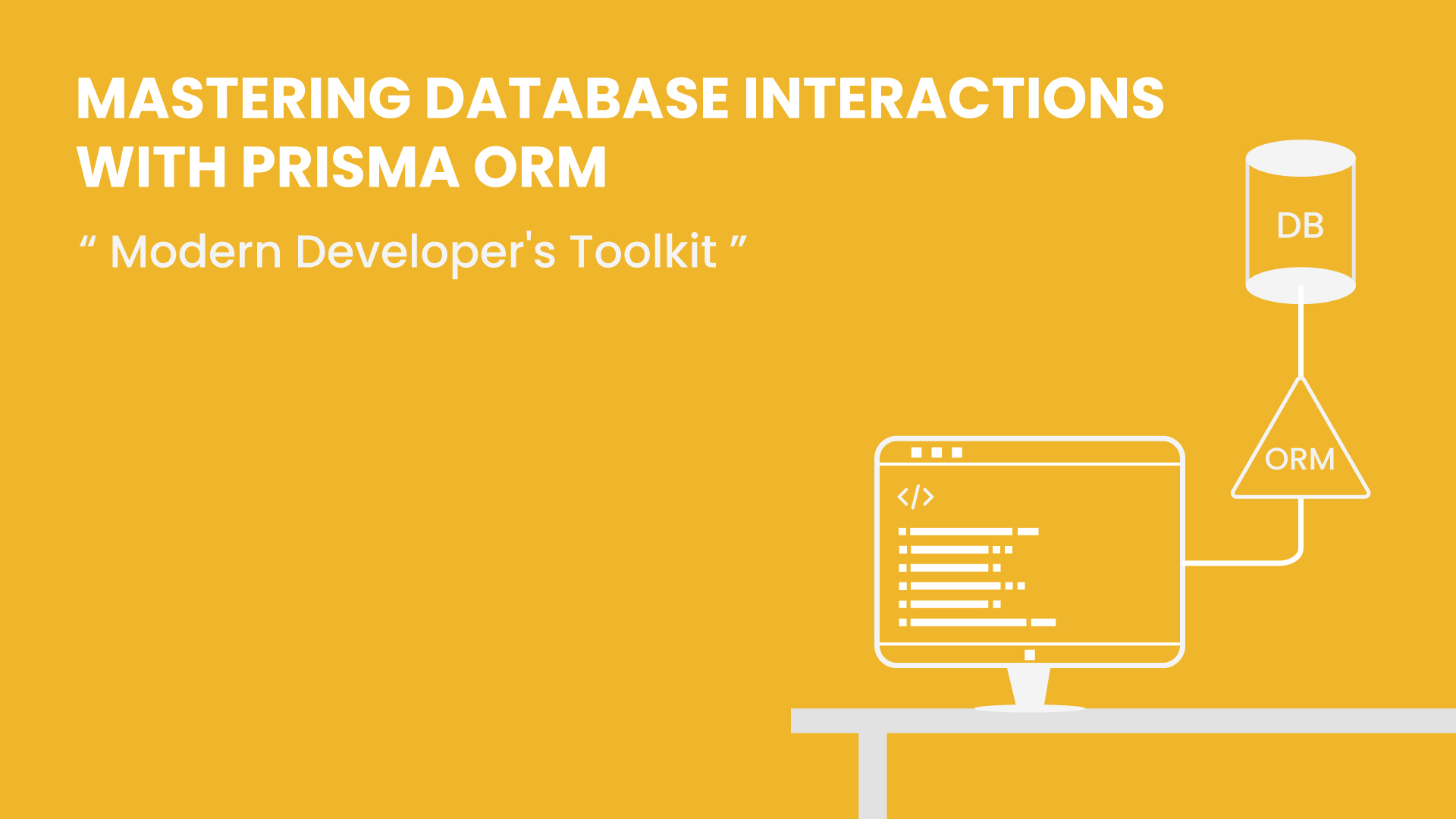
Modern application development often feels like speaking two different languages, one for elegant, object-oriented code and another for rigid database structures. This "impedance mismatch" between application logic and relational databases has plagued developers for years, leading to repetitive boilerplate code, runtime errors, and decreased productivity.
Enter Prisma ORM, a revolutionary approach that bridges this gap with a schema-first, type-safe methodology that transforms how developers interact with databases.

Early database tools like raw SQL queries, Sequelize, and TypeORM suffered from several critical issues:
Prisma evolved from its origins as GraphQL-based Prisma 1 into a comprehensive database toolkit that addresses these fundamental challenges through:
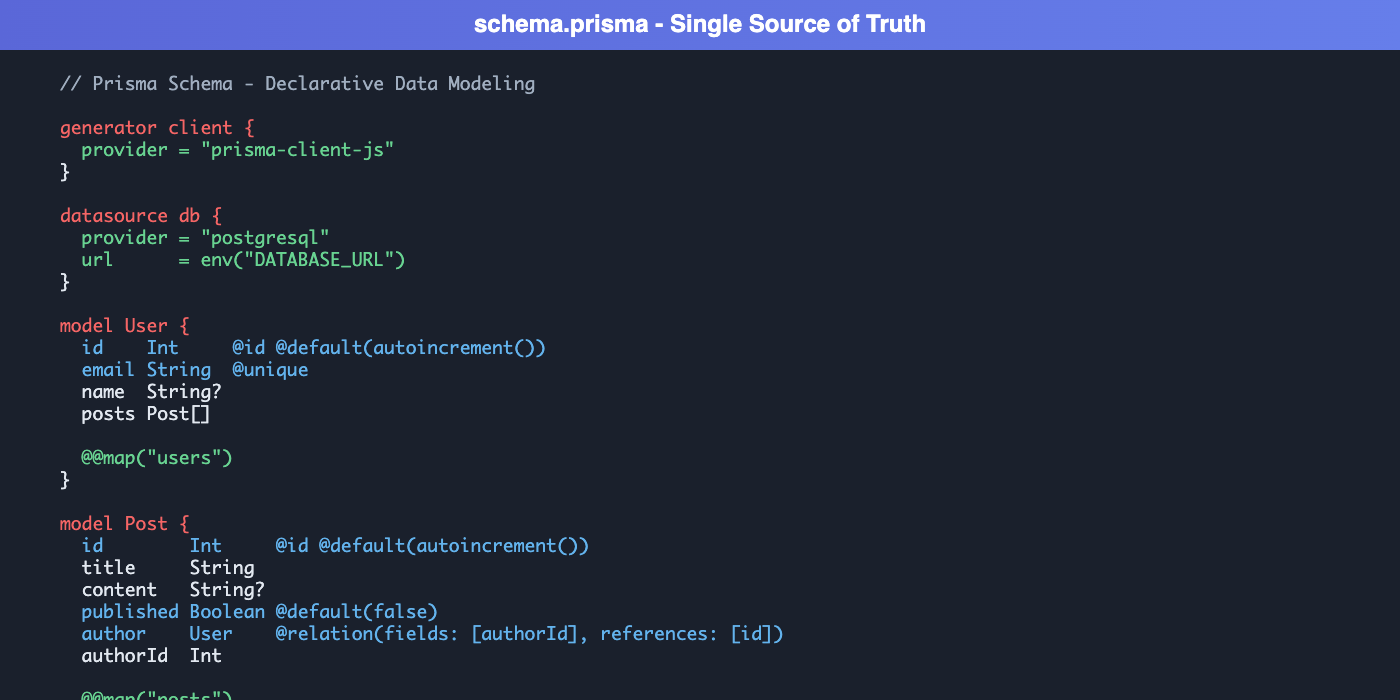
At Prisma's core lies the schema.prisma file, a declarative blueprint that defines your data models, relationships, and database configuration. Here's a practical example:
generator client {
provider = "prisma-client-js"
}
datasource db {
provider = "postgresql"
url = env("DATABASE_URL")
}
model User {
id Int @id @default(autoincrement())
email String @unique
name String?
posts Post[]
}
model Post {
id Int @id @default(autoincrement())
title String
content String?
published Boolean @default(false)
author User @relation(fields: [authorId], references: [id])
authorId Int
}
This single file serves as the foundation for database schema generation, type definitions, and API creation.
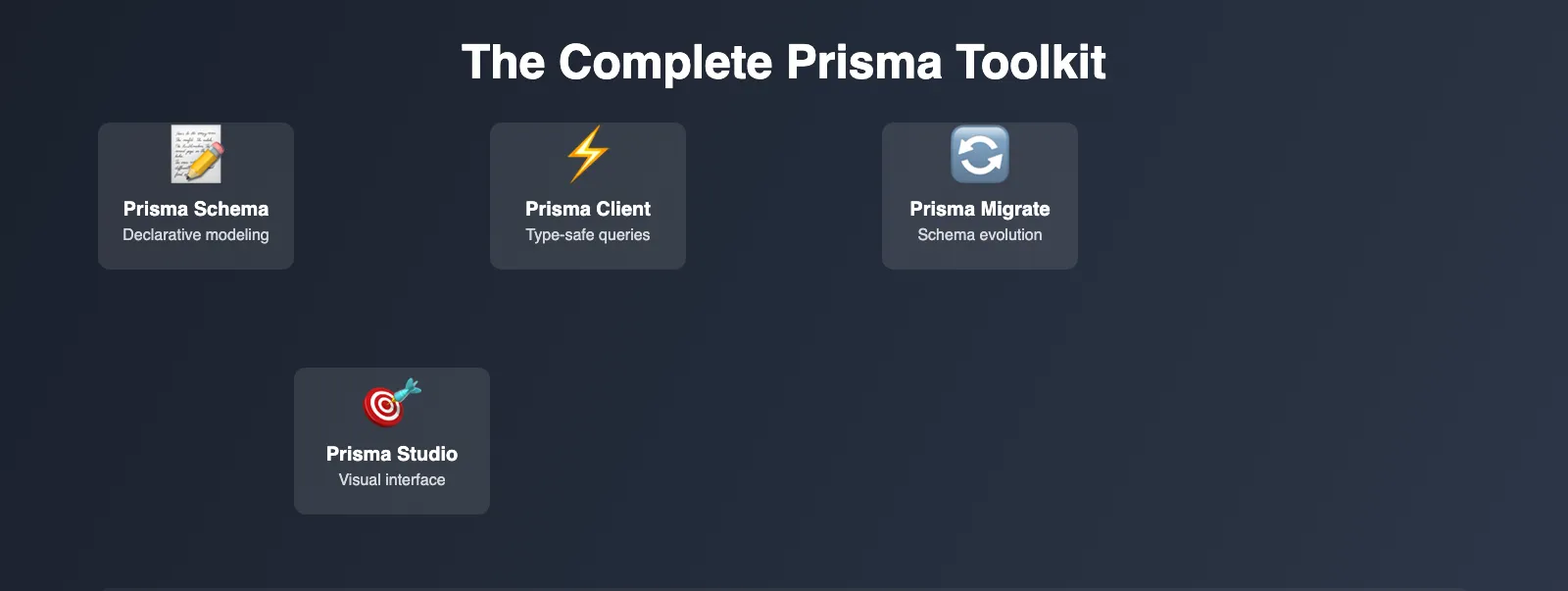
Prisma Client generates a type-safe query interface directly from your schema:
// Creating a new user
const newUser = await prisma.user.create({
data: {
name: 'Alice',
email: 'alice@example.com'
}
});
// Fetching posts with authors
const posts = await prisma.post.findMany({
include: {
author: true
}
});
Managing database changes becomes effortless with Prisma Migrate:
npx prisma migrate dev --name add-user-posts
This command:
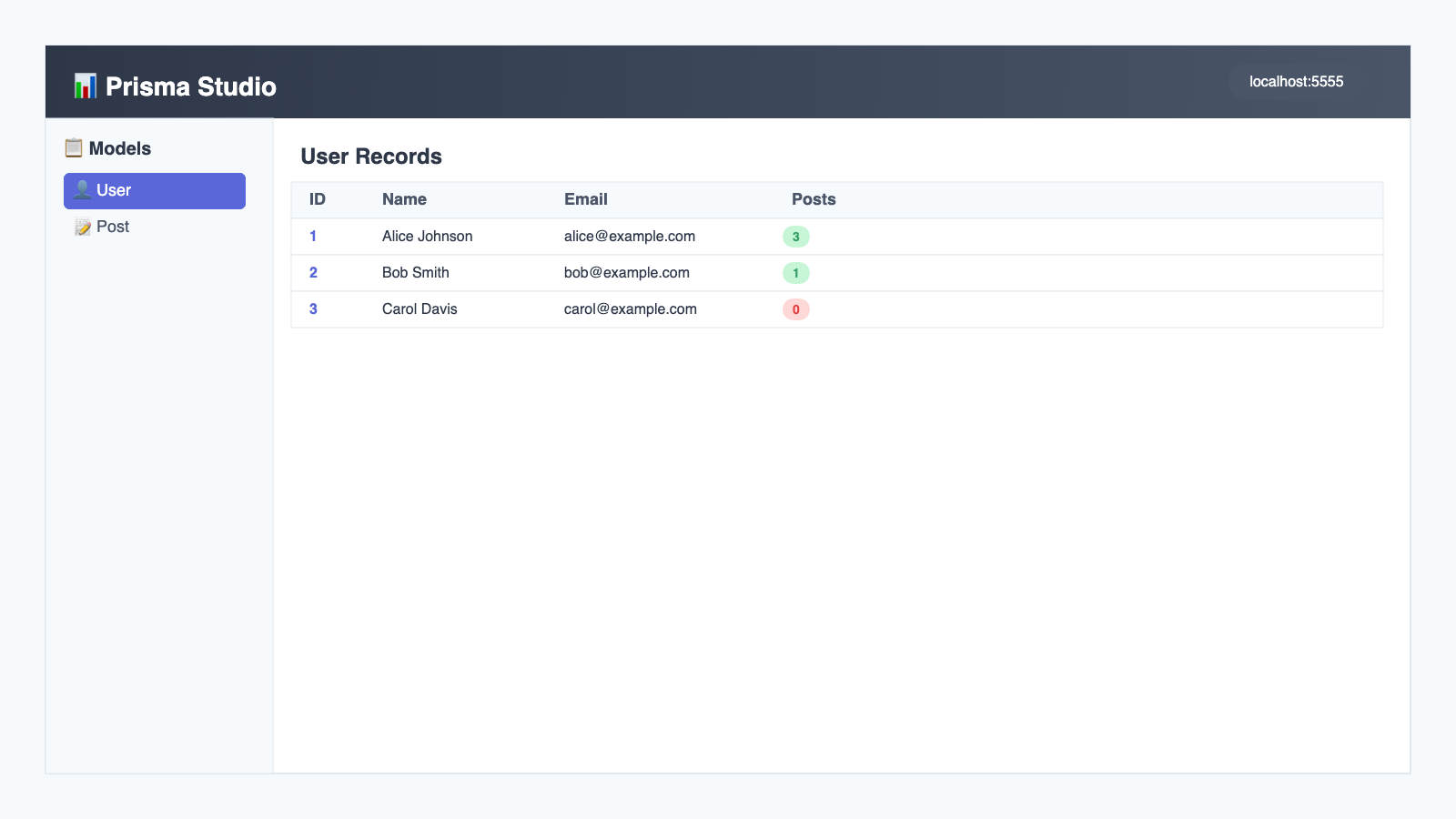
A browser-based interface that provides:
Prisma's engine automatically:
For Web Applications:
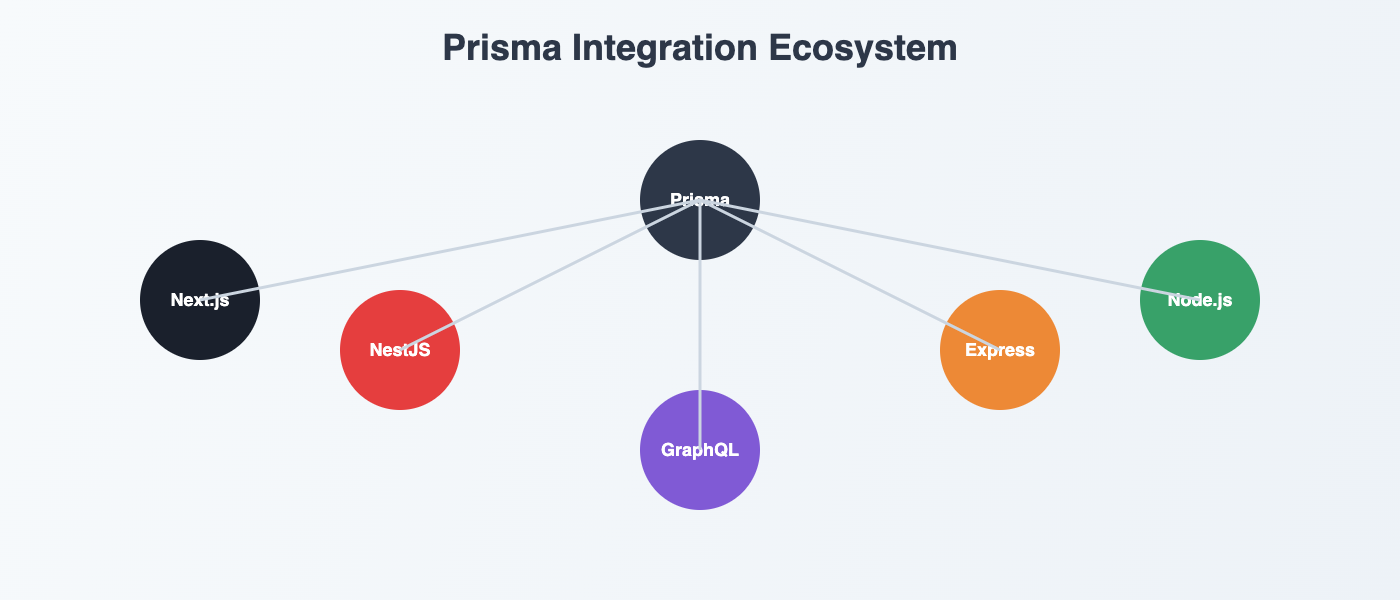
For Microservices:
E-commerce Platforms:
Fintech Solutions:
SaaS Applications:
Content Management:
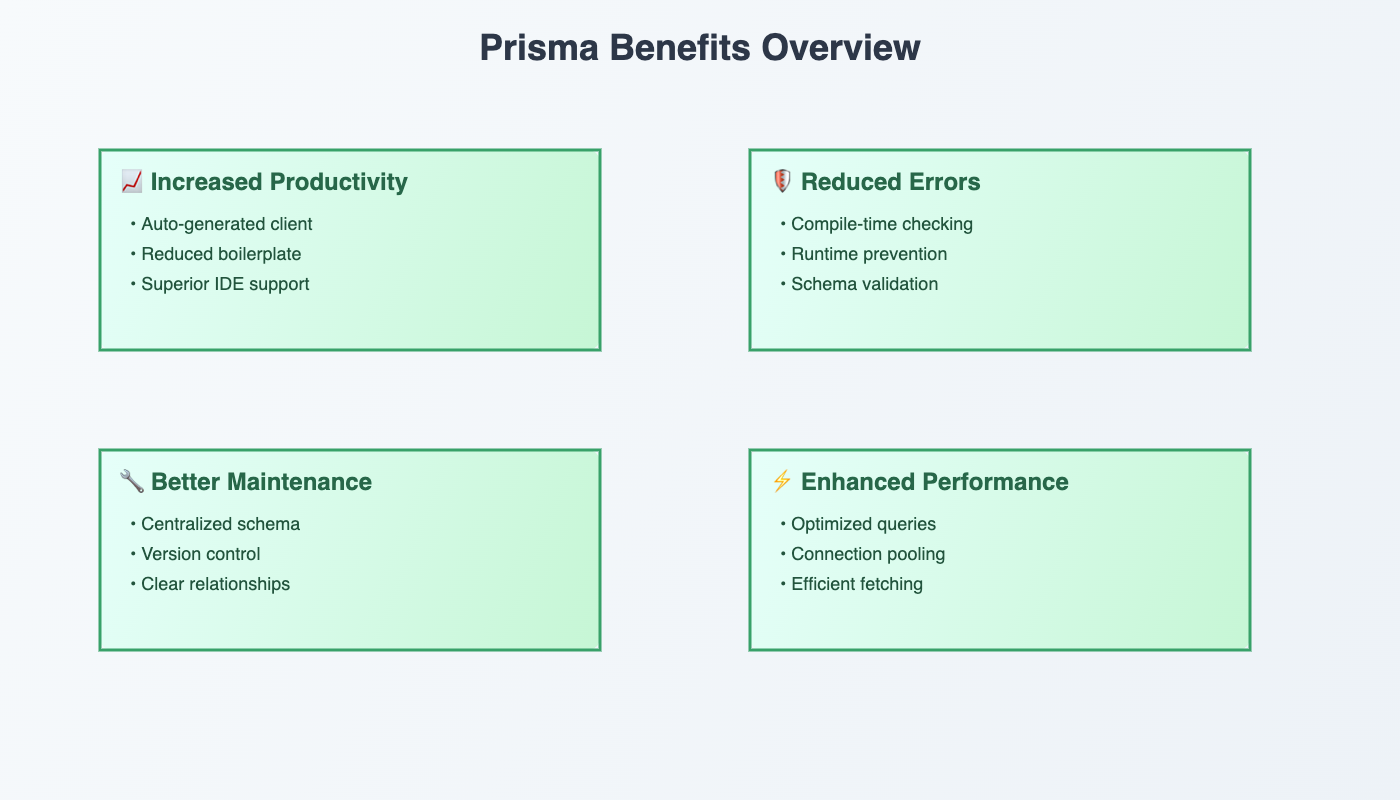
For SQL-First Developers:
Bundle Size Considerations:
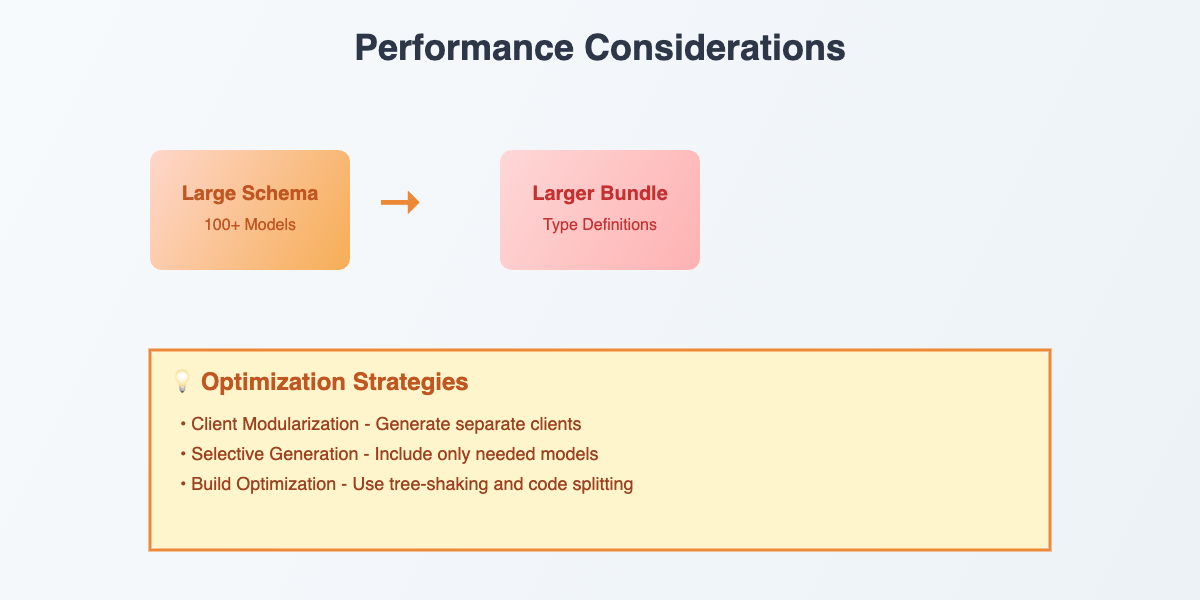
Database Support:
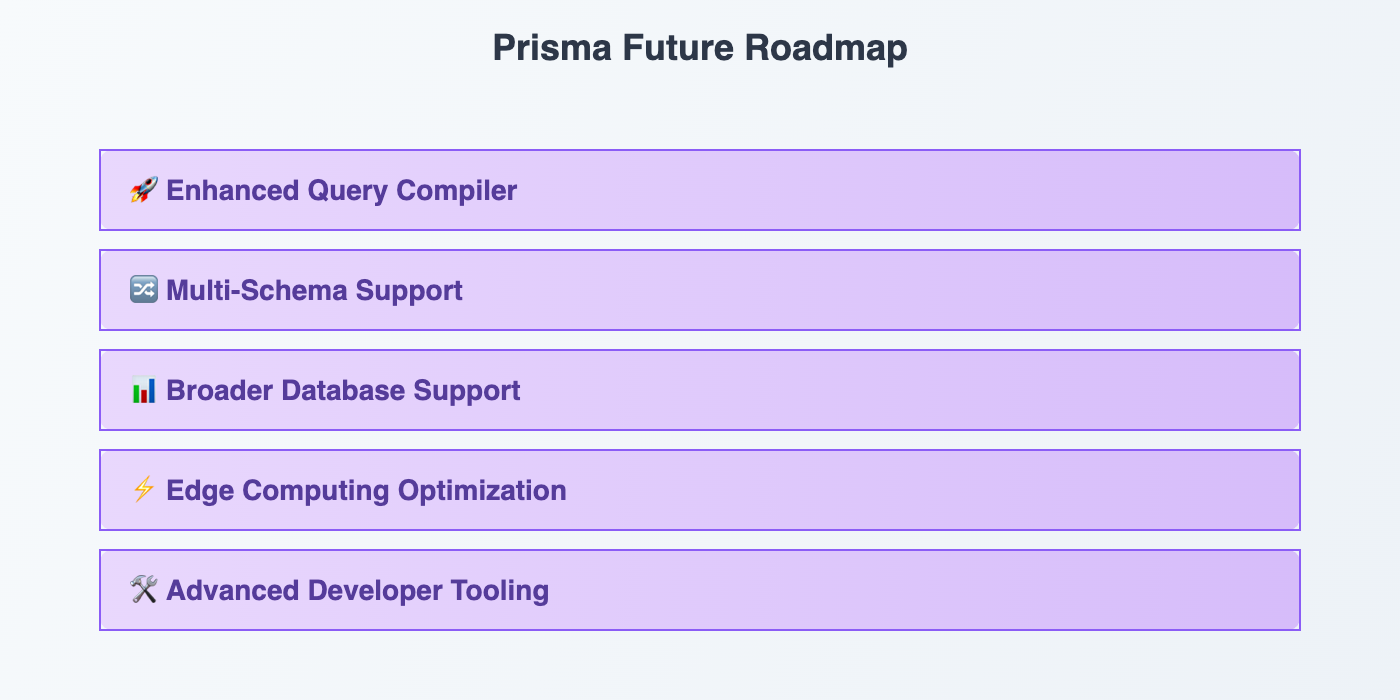
Query Compiler Enhancements:
Modular Architecture:
Multi-Schema Support:
Serverless and Edge Computing:
TypeScript Integration:
Compile-Time Safety:
Code Maintainability:
Team Collaboration:
npm install prisma @prisma/client
npx prisma init
Define your data models in schema.prisma:
generator client {
provider = "prisma-client-js"
}
datasource db {
provider = "postgresql"
url = env("DATABASE_URL")
}
model User {
id Int @id @default(autoincrement())
createdAt DateTime @default(now())
email String @unique
name String?
posts Post[]
}
npx prisma migrate dev --name init
import { PrismaClient } from '@prisma/client';
const prisma = new PrismaClient();
// Use in your application
async function main() {
const users = await prisma.user.findMany();
console.log(users);
}
main();
Prisma ORM represents a paradigm shift in database interaction, offering a solution that combines the power of SQL with the safety of TypeScript. Its schema-first approach, comprehensive tooling ecosystem, and focus on developer experience make it an ideal choice for modern application development.
By eliminating the traditional pain points of database development, from type safety issues to migration headaches, Prisma enables developers to focus on building exceptional applications rather than wrestling with database complexities.
The three pillars of Prisma Client, Prisma Migrate, and Prisma Studio provide a complete, robust foundation for database operations that scales from small projects to enterprise applications. As the ecosystem continues to evolve with enhanced performance, broader database support, and serverless optimizations, Prisma is positioned to remain the leading choice for developers seeking efficient, reliable database interactions.

.svg)